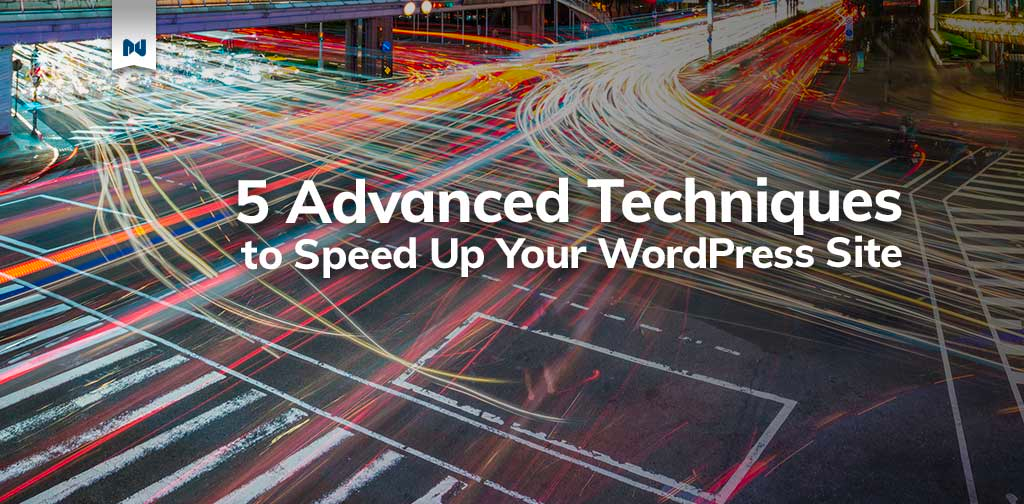You already know the basics about how to speed up WordPress. Now, take your site to the next level with these advanced WordPress optimization techniques. In this blog, you’ll learn the three key components of web performance and get five actionable techniques to speed up WordPress.
Keep reading to learn how to speed up your WordPress site with these advanced techniques.
Importance of WordPress Site Speed
Before getting into the techniques, let’s reiterate the importance of site speed. It’s not just a “nice to have.” Site speed is important for SEO and conversion rates. It’s also critical to providing a good user experience.
Site visitors have high expectations for page loading time. About two thirds of mobile visitors expect pages to load under 4 seconds. However, the average time it takes to fully load a mobile webpage is 15.3 seconds.
When that happens, your site visitors will likely leave and find another site. In fact, 79% of customers would take their business to a competitor when encountering a page load time of 7 seconds or more.
How to Create a WordPress Performance Tuning Strategy >>
As for SEO, site speed is one of the top factors that influence rankings. Simply put, slow sites hurt your visibility and organic traffic.
Sites should load under 3 seconds. Anything above 4 seconds can impact the web rankings and core web vitals. These are the key metrics Google uses to rank your site. Sites loaded in 300-400 ms experience 36% higher keyword rankings. They also saw a 10% increase in clickthrough rate.
Slow WordPress sites also hurt conversion rates. In fact, conversion rates drop 4.42% with each growing second of load time between 0-5 seconds.
This context emphasizes the importance of speeding up your WordPress site.
Understanding the 3 Components of Web Performance
When we talk about web performance, it can be broken down into three main categories:
- Resource management — Includes things such as:
- Static asset distribution (CDN)
- Fonts
- Tracking scripts
- Asset compression
- Image optimization
- Full page cache
- Code — This includes:
- Core WordPress
- Plugins
- Themes
- .htaccess
- wp-config.php
- Hosting — These are the things affecting site speed related to your host and can include:
- Time to first byte
- Disk speed
- Database performance
- Server configuration
- Object and/or micro-caching
- PHP workers
- Security
5 Advanced WordPress Optimization Techniques
If you want to speed up WordPress, first set a baseline. Baselining is important because it shows how things have improved over time. Set your baseline before you begin to optimize your WordPress site so you can accurately measure the impact of any adjustments you make.
For example, waterfall from GTMetrix coupled with page load speed and first contentful draw is a great indication of performance.
1. Find Poor Performing Plugins and Themes
Unfortunately, there are many poorly performing WordPress plugins and themes available. These can slow down the performance of your WordPress site. Fortunately, you don’t have to remove a plugin’s capability if it performs poorly. Instead, find a better performing plugin or theme.
Find performance offenders and replace them with alternatives. This works for both frontend and backend performance tuning.
When examining your plugins and themes, look at:
- Inefficient queries.
- Double loading of resources and libraries.
- Calls to external scripts.
- Calls to nonexistent resources.
If you don’t want to replace a plugin or theme on your site, there’s another option. You can go through support channels to contact the plugin developer and ask them to adjust it accordingly.
That way, you don’t need to remove and replace that plugin on your site. It’s also great for the WordPress community, as it benefits all users of that plugin or theme.
2. Optimize Your Fonts
Optimizing delivery of fonts can dramatically change performance on your WordPress site.
To speed up your WordPress site, don’t load fonts that aren’t being used. You should also load Google or Type Fit fonts locally. Preload fonts when it’s appropriate. This helps ensure fonts are available and that they are being concurrently delivered
You can use the plugin OMGF (Optimize My Google Fonts) which enables you to host Google fonts locally.
3. Load GA Locally
Loading GA scripts locally can shave time off total page load time and can make concurrent loading easier. You can use the CAOS WordPress plugin to do this. This enables loading from your CDN locally.
4. Fine Tune Full Page Cache
Caching for WordPress is important for improving loading time. Go beyond standard caching and optimize your full page cache for performance and site speed.
For full page cache:
- Be specific about page exceptions.
- Always remember browser caching.
- Set cache expiry, which can reduce stress on the server and accelerate page load times.
- Don’t forget cookies.
5. Utilize a CDN to Serve Static Assets
A WordPress CDN is the finishing touch to speeding up your WordPress site. Think of your CDN as a cache delivery network. A CDN can deliver cached assets quicker by delivering them closer to your visitor, thanks to different geographic server locations. Because of this, you can leverage CDN super powers to reduce the overall server load and speed up load time.
Speed Up WordPress With Nexcess
It’s important to speed up WordPress if you want your site to rank well on Google, convert, and provide an excellent user experience. Utilize these advanced WordPress optimization techniques to speed up your site and boost performance.
If your WordPress host is not providing you with the speed you need, consider fully managed WordPress hosting from Nexcess.
Nexcess can make your WordPress site faster with:
- A built-in Edge CDN powered by Cloudflare with over 280 locations.
- Advanced caching for ultra-fast loading.
- Image compression to lower browser load times.
- And much more.
Get started with managed WordPress hosting for free.

